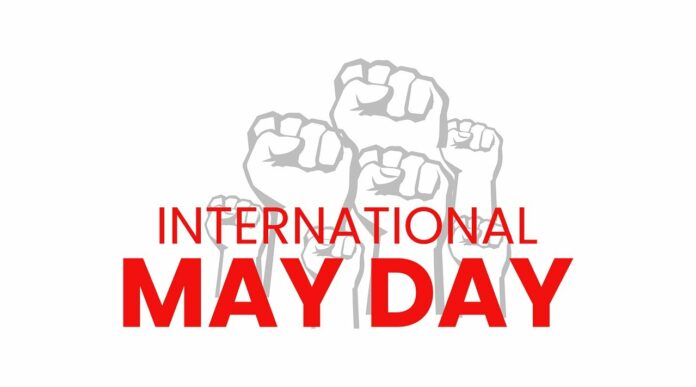May 1 marks International Workers Day globally and Worker’s Day in South Africa. It is a day commemorated by many people around the world. In this time of the pandemic with rising inequality, it is important to understand the origins of the day and why it is so important.
Globally
- It is meant to commemorate the historic struggles and gains made by workers and the labour movement.
- The day finds its origins in the Haymarket Riot which took place in Chicago in 1886. The Riot was a confrontation between police and labour protesters in Chicago on May 4, 1886. It then became a symbol of the international struggle for workers’ rights.
- From May 1 to 3 1886, there were mass protests calling for workers’ rights and an eight-hour-work day. The protests were led by a group of anarchists. However, on May 4, during a public meeting, a bomb exploded at Haymarket – causing mass chaos. Many of the leaders of the movement were jailed and later hung for allegedly instigating violence but it was later proven they were not guilty.
- In 1889, three years after the events, May Day became the day commemorated as International Workers’ Day by the Second (Socialist) International, a federation of socialist parties and unions based in Europe.
- In Europe, May Day was a celebration of the return of spring. However, over the years the meaning changed and the day is now generally associated with the labour movement.
- While the day finds its origins in the United States of America, it isn’t actually celebrated there. This is because five years after the day was declared by the Second Socialist International, the president at the time, Grover Cleveland signed Labour Day into legislation. Labour Day in the US takes place in September in honour of workers. The reason for this is because Cleveland was uneasy with the socialist origins of Workers’ Day.
- It is an official holiday in 66 countries and unofficially celebrated in many other countries – except for the country where it began.
RELATED:
Workers’s Struggles For A Dignified Life Are Far From Over
South Africa
- With regards to locally, the first recorded celebration of Workers Day in South Africa is reported to have taken place in 1895. It was organised by the Johannesburg District Trades Council during a visit by British labour and socialist leader Tom Mann.
- The year 1928 marked the first time that Black workers participated in the May Day mass marches. Between 1928 and 1948, the day became an annual event, with workers of all races taking part.
- On May 1 1986, the 100th anniversary of May Day was commemorated. The South African Congress of South African Trade Unions (COSATU), which had formed the previous December, demanded that May Day be recognised as a public holiday, Workers Day. They also called for a stay-away.
- The holiday used to be informally and unofficially celebrated by workers since the 1980s.
- It officially became a public holiday after the 1994 elections. In South Africa, it is a celebration of the role that rade unions and workers’ organisations played in the struggle against apartheid.









